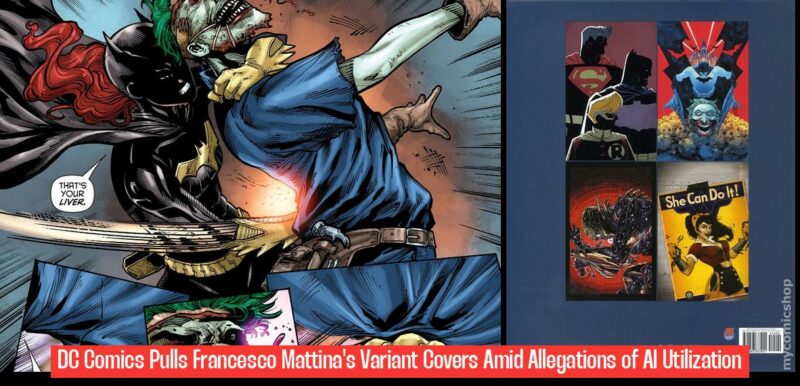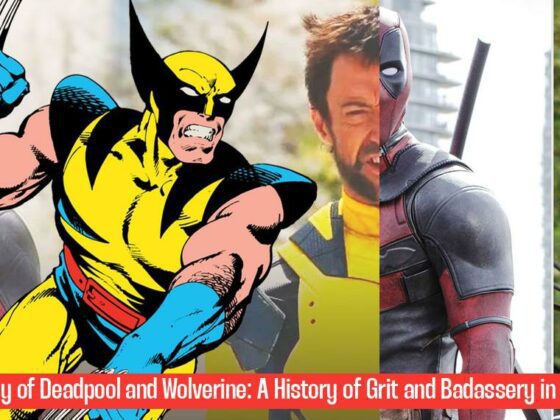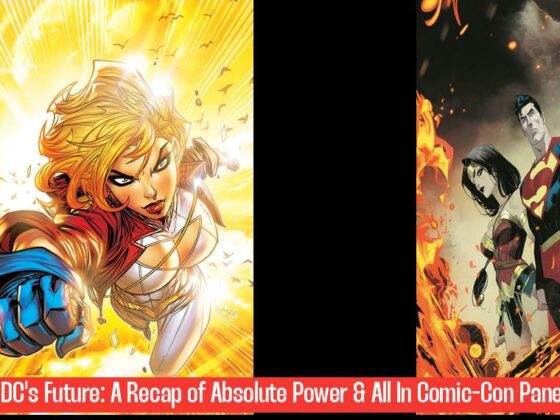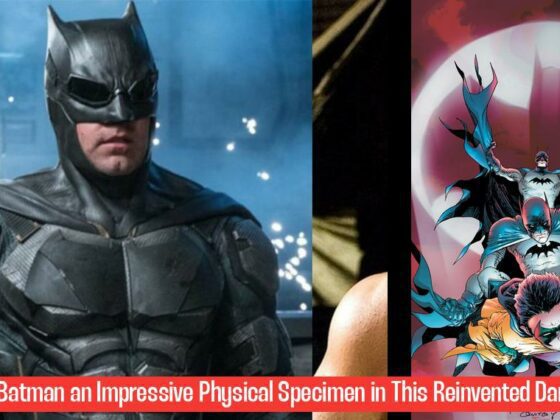DC Comics Halts Francesco Mattina’s Covers Amid AI Use Controversy
Ah, the world of comics – where heroes and villains come alive in vibrant colors and daring adventures! Now, imagine this colorful world shaken by a controversy that’s got everyone talking. DC Comics, known for its gripping stories and iconic characters, is currently making headlines for halting Francesco Mattina’s variant covers due to alleged use of AI. It’s like a plot twist in a comic book saga!
So, what’s the buzz all about? Well, if you’re a comic aficionado, you know that variant covers are like prized possessions for collectors. These unique artworks draw fans in like magnets, especially when talented artists like Francesco Mattina are involved. However, recent observations by eagle-eyed fans revealed that some of Mattina’s work seemed suspiciously different. It turns out he was using generative AI to create his covers!
Now, you might be wondering why this stirred up such a storm. Picture this: in the realm of comics where creativity reigns supreme, allegations of AI assistance can spark heated debates. Many artists fear that such technology could cut into their livelihoods or lead to art theft. The situation escalated further when prominent figures like Marvel artist Adi Granov condemned Mattina’s methods as plagiarism.
As of today, DC has taken action by pulling all of Mattina’s September covers from circulation. His art for titles like “Action Comics,” “Superman,” and “Batman” will soon be replaced by works from other talented artists. This isn’t the first time DC has faced issues with AI-generated covers either; previously they had to replace artworks due to similar controversies.
So here we are at an intriguing crossroads where traditional art clashes with modern tech in the realm of comics. How will this unfold? What does it mean for the future of cover artistry in the industry? Stay tuned to uncover more twists and turns in this unfolding saga!
The Implications of AI in Comic Art: The Case of Francesco Mattina
The recent controversy surrounding Francesco Mattina’s use of AI in creating variant covers for DC Comics has led to a significant shake-up in the comic book world. Fans quickly noticed the difference in his recent works, prompting DC to take action by pulling all future Mattina covers from their lineup. The allegations of AI assistance have sparked debates about the role of technology in traditional artistry and potential threats to artists’ livelihoods. This case highlights the delicate balance between artistic innovation and ethical concerns within the industry.
The implications of AI in comic art extend beyond just this particular case with Francesco Mattina. The use of generative AI poses challenges not only in terms of originality but also raises questions about intellectual property rights and artistic integrity. As technology continues to evolve, artists and publishers must navigate these murky waters carefully to maintain the essence of creativity while embracing innovation.
For comic book fans, this controversy offers a glimpse into the behind-the-scenes struggles and controversies that can impact their favorite stories and characters. It prompts reflection on how advancements like AI can both enhance and complicate the creative process in an industry deeply rooted in imagination and storytelling.
So, what do you think about this intersection of artistry and technology in the world of comics? How do you feel about AI being used to create cover art, especially when it comes to preserving artistic authenticity? Share your thoughts on how you envision the future of comic art evolving in light of these developments!
Community Backlash and Ethical Concerns Over AI in Comic Artwork
The recent backlash and ethical concerns surrounding Francesco Mattina’s use of AI in creating variant covers for DC Comics have caused quite a stir in the comic book community. Allegations of AI assistance, notably pointed out by artist Adi Granov, have led to DC taking action by pulling all future Mattina covers from their lineup. This controversy highlights the growing tension between technological advancements like AI and traditional artistic practices, raising questions about creativity, originality, and ethical boundaries in the industry.
This situation serves as a reminder of the evolving landscape where artistry intersects with technology. While AI can offer valuable tools for artists to experiment and enhance their work, it also brings to light the importance of maintaining artistic integrity and respecting intellectual property rights. The need for clear ethical guidelines and transparency in labeling AI-generated artwork is becoming increasingly crucial to uphold authenticity and trust within the creative community.
As comic book enthusiasts navigate through this unfolding drama, they are encouraged to reflect on how these debates shape the future of comic artistry. How do you perceive the role of technology like AI in shaping the creative process? What measures do you believe should be taken to balance innovation with ethical standards in the realm of comic artwork? Share your thoughts on this intriguing fusion of artistry, technology, and ethics in the colorful world of comics!
What is the reason behind DC dropping Francesco Mattina’s variant covers?
DC dropped Francesco Mattina’s variant covers after allegations surfaced that he was using generative AI on his own covers, which drew criticism from the comics community.
Which comic book publisher is known for using variant covers to entice collectors?
Marvel and DC Comics are known for using variant covers drawn by different artists to entice collectors to purchase their issues.
Who criticized Francesco Mattina for allegedly using generative AI on his covers?
Marvel artist Adi Granov criticized Francesco Mattina, calling him a “serial plagiarist” who made a career out of using other artists’ work in his covers.
How did the comics community react to the allegations against Francesco Mattina?
The comics community reacted strongly to the allegations against Francesco Mattina, with many feeling that the use of generative AI could lead to corporations avoiding payment to artists or stealing previously published work.



